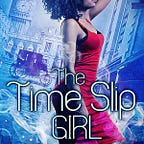How to create diverse stories without tokenism
My wife and I create diverse stories, and we are always looking for ways to increase the diversity because we live in a diverse world and representation matters. This effort got us to thinking about what it means to do diversity right, avoid tokenism, and avoid diversity bingo. We spoke about this subject at Clexacon in Las Vegas in April, 2019 on a panel along with C.B. Lee and Rachel Gold. Here are some tips we’ve come up with.
- Is the character more than its marginalized identity? This issue varies but can be particularly acute with characters with a disability. Even people with disabilities have lives that go beyond what you think they might be. Avoid anything that minimizes a character’s humanity and autonomy.
- Never write about anyone as if they are a pity fuck.
- Is your character suffering just because of who they are? Are you writing oppression/trauma porn? Look, oppression happens. So, does trauma. Both are awful, but it’s highly unusual for someone to be in a situation so horrific that there is absolutely no joy in their lives. I was fascinated (and a bit stunned actually) that, when I was speaking to someone who is transgender about the lesbian romance I had written with a transgender character, they asked me not to kill off that character. They were so used to transgender characters dying in fiction that it was what they expected. No one dies in romance fiction, not even transgender characters, so it hadn’t occurred to me.
- Be cautious about judging anyone’s life as awful or not worth living.
- Is your character an inspiration just because of who they are? If your character is an inspiration because they got out of bed, got dressed, and left the house, you should rethink your expectations for them because your current expectations may be insulting and too low.
- Is the character a stereotype? I’m a former journalist, and in journalism school I was taught that stereotypes are not truth, but they can act as shorthand to help you ask good questions and get you a better story. I’m increasingly believing that stereotypes are not even shorthand. They’re just awful boxes that people squeeze themselves into or fight against. When you write a character with a marginalized identity, it’s always worth asking why you made the decisions you did about aspects of their character. Beware the sassy black friend, the stylish gay roommate, or the Jewish accountant. I’m sure you can think of other examples. PS: It’s not that these people don’t exist in real life, it’s just you can be so much more creative than that. Don’t be lazy.
- Are you writing your story as if it’s a universal experience? All marginalized identities have commonalities, but that doesn’t mean that there is one African American experience, one lesbian experience, one female experience, etc. Other identities and life experiences will interact to make things more complicated and much more interesting.
- What does the character get to do? If you have a character who is not like you, particularly if they are from a marginalized group, what do they get to do in your story? Are they always in the back of the picture or off to the side (on the margin)? Do they occasionally — or even all the time — get their own spotlight?
- Are they black, Asian, Latino, Jewish, rural, working class, but act like everyone else in the story? Are their characteristics literally used for “color.” Or are they more interesting? Yes, we are all human beings with our commonalities, but commonalities should not be focused on to the exclusion of our differences.
- Do you need a white, cisgender het character in your story at all? This point of view is common, but it’s not always necessary. Marginalized identities are quite capable of telling their own stories and being their own heroes.
- Have you done your research? To get things right means doing research, but talking to one person for ten minutes is the wrong way to do this. (See above: no universal experience.) I prefer hanging out either in real world or online spaces (Note: never invade a space that is specifically not open to you). Hang out, listen, shut up (most important step). It’s amazing how much you’ll learn when you pay attention. (Note: no one is obligated to share their story or their experience with you. No one owes you shit, even if you do consider yourself a good ally and just want to understand things better.)
- Is it appropriation? You can write, create, draw any story you like, but is it the right thing to do? Are you stealing something that isn’t yours? Are you filling a space and making it impossible for someone from that marginalized group to tell a story from their perspective? Are you making it more difficult for a creative person from a marginalized group to make a living at their craft?
- Are you treating the character with the same respect that you would want a character like you to be treated? ‘nuff said.
- Would a sensitivity reader help you out? When in doubt, recruit a sensitivity reader from the group you want to represent. Consider paying them.
Elizabeth Andre writes lesbian romance, science fiction, and paranormal adventure. She is a lesbian in an interracial same-sex marriage living in the Midwest. She hopes you enjoy her stories. She certainly loves writing them. If you would like to support her work, become a member of her Patreon or subscribe to her email newsletter.
